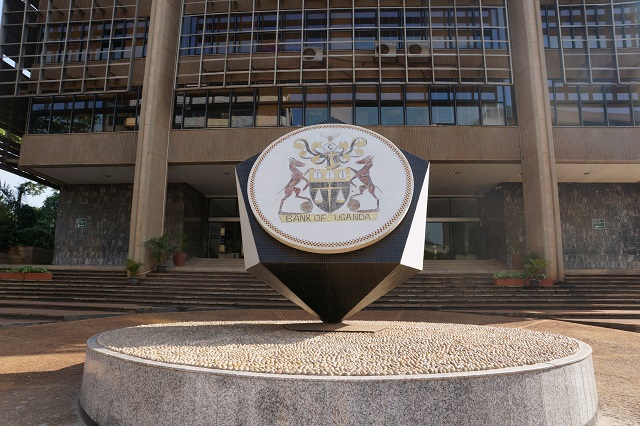
Consumer Protection for users of financial institutions services: The rationale for which the Financial Institutions Act gave bank of Uganda regulatory mandate was the power asymmetry that exists in the relationship between Financial Institution and their Customer. Given the position of power that financial institutions hold in this relationship, leaving the parties to relate without any regulator is to “throw the customer under the bus. In this case, the court was thus right, in finding that a foreign bank doing Financial Institutions Business in Uganda without a license from the regulator was in breach of the law.
I am therefore of the view that Bank of Uganda “threw a customer under the bus” by publically declaring that the nature of the transaction Mr. Kiggundu entered into with Diamond Trust Bank Kenya, was not one of those regulated under the Financial Institutions Act.
In this case, the outstanding questions include; who then regulates that space which neither Uganda nor Kenya regulates? To which authority should a Ugandan consumer seek redress in the event they need it? Why shouldn’t other banks that seek to lend beyond the legal lending limit opt to use the same lacuna?
For this matter therefore, insofar as court sought to protect Ugandan Consumers of Financial Institutions services, the court decision was as good as they come.
Monitory Policy considerations: The International Monetary Fund defines Monetary policy as a course of action adopted by the monetary authority of a nation (in this case BoU) to control either the interest rate payable for very short-term borrowing (borrowing by banks from each other to meet their short-term needs) or the money supply, often as an attempt to reduce inflation or the interest rate to ensure price stability and general trust of the value and stability of the nation’s currency.
In this case, Bank of Uganda’s day-to-day job includes keeping an eye on the money supply in the economy for the reasons stated above. So if that is the case, what is wrong with a court of law finding that anyone who brings money into the Uganda, and does so outside the regulatory oversight of Bank of Uganda does so illegally?
In view of the facts at hand, DTB Uganda did not have enough money to lend its customer, Mr. Kiggundu Hamis. It resorted to reach out to its sister bank DTB Kenya to establish an arrangement through which the customer would borrow the money it could not lend him. For all intents and purposes, this transaction squarely fell within the Monetary Policy regulatory mandate of Bank of Uganda.
Any attempt to say that such transactions of infinite amounts of money can freely be done without a license from Bank of Uganda, exposes the Ugandan economy to the very risks that the Financial Institutions Act and the Bank of Uganda Act sought to protect the economy from. Therefore, for the sake of ensuring that Bank of Uganda continues to manage the rate of inflation, price stability and stability of the Uganda Shilling, the realm in which Mr. Kiggundu and DTB Kenya operated in ought to be regulated by the Financial Institutions Act.
Illicit Financial Flows (IFFs) and money laundering risks: In the wake of the global war against terror, governments across the world started pay more attention to the movement of money into, out of and through their territories. Whereas this had always been an area of concern due to drug trade and corruption, it is the practice of financing acts of terrorism that got everyone acting. In Uganda’s case, we not only have the Anti-Money Laundering Act, 2013 (as Amended), but have also established the Financial Intelligence Authority as an extra safeguard, alongside Bank of Uganda.
Given the amount of money that the Ham Vs DTB case was dealing with, it is clear that this transaction out to have been subjected to, and brought to the attention of, all the relevant regulatory bodies. It is the failure to do so that brought the legality of this transaction in issue. When Bank of Uganda published its statement declaring that DTB Kenya needed not to have obtained a license prior to operating in the country, it exposed major IFFs and money laundering loopholes in Uganda financial regulatory framework.
One of the major IFF risk factors is loans between parent companies and their subsidiaries against which unnecessarily high interests can be paid (higher than the lending rates) so as to reduce incomes liable to taxation for the company in question. BoU’s admission simply means that this has likely been happening and will continue happening if the ruling in this case is set aside.
I note that many pundits discussed this case based on emotions, the character of parties involved and morality. They argued that Ham, having received the money cannot go scot free without refunding it, even if Diamond Trust Bank (K) Ltd did not have a license to lend to him.
This argument is supported by the Contracts Act of Uganda and a famous English case of Fibrosa Spolka Akajjna vs Fairbran Lawsan Combe Barbour Ltd. Basing on the doctrine of unjust enrichment and the remedy of restitution, anyone who derives benefit from an illegal or frustrated contract must restore the other party to the position in which they were before the contract.
Notwithstanding the fact that I believe the court decision was right insofar as legality is concerned, I agree that in the event Mr. Kiggundu got any unjust enrichment from the transaction, he must pay his outstanding debt, if any. But the fact that he could have benefited from the loan does not make an otherwise illegal dealing of DTB Kenya, legal.
Finally, I also opine that the fears that this ruling will constrain the flow of credit into the economy are unfounded. Obtaining a license is supposed to be a matter of hours if the applicant’s paper work is in order.
It will only be a problem if BoU makes this unnecessarily long.
Additionally, the costs involved are so negligible that they would not increase the cost of credit. Finally, such licenses cannot be a deterrent because the profits maximizing financial institutions still need Uganda’s market just like Uganda’s market needs them.
So I ask, if the ruling is set aside, who will protect the Ugandan consumer from the profit maximizing financial institution?
*****
 James Muhindo is the Chairperson of the Network of Public Interest Lawyers in Uganda.
James Muhindo is the Chairperson of the Network of Public Interest Lawyers in Uganda.
This is part of an ACODE Centre for Budget and Economic Governance (CBEG) brief January 2021
 The Independent Uganda: You get the Truth we Pay the Price
The Independent Uganda: You get the Truth we Pay the Price




i strongly side with the juror’s ruling however how did dtb kenya start business in uganda without any permit??
Uganda is a developing country and this set a precedence for all FDIs to come without any foreign debt facilities. Uganda banking sector is not sound enough to meet the debt requirement of FDI’s. The article sounds logical, but conveniently forget the fact that cross-border lending is a norm internationally and any bank in one jurisdiction can lend to a company in another jurisdiction through the FCBU/Offshore banking units.
Uganda has an open capital account, meaning the free flow of funds, if the Capital account is restricted HAM should have got prior approval from the monetary board to borrow overseas.
This is a classic case of misinterpretation while Uganda being the ultimate looser and a no go for overseas development banks